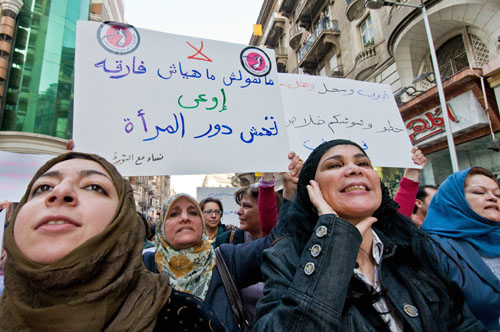
Gender equality can become a lived reality if citizens of the world continue to make it a global goal. 在 全球搜索教育: 婦女, I begin to explore the enormous moral and socioeconomic ramifications of gender inequality as well as the powerful argument for education as the agent for transformation. Education is clearly the paramount weapon we can use to bring about change in the war on gender inequality.
I remain committed to playing my part in continuing to educate others on the problems as well as the innovative solutions that individuals and organizations all over the world are identifying each day to attain gender equality for all in the 21st century. Earlier this year at the fourth Green Templeton College Emerging Markets Symposium at Oxford University, world authorities on the various forms of gender discrimination and inequality shared their views, including Sir George Alleyne, 大衛·沃森爵士, 州長瑪德琳獲取, 梅格·瓊斯, 琳達·斯科特, 簡·麥考利夫, 蘇曼貝里, 滇戈麥斯, 瑪麗·伊麗莎白·王, Jeni Klugman and Ian Scott. They agreed to continue the conversation with me in this new series about gender equality. In today’s article, I connect with Sir David Watson, Principal of Green Templeton College at the University of Oxford; 獲取馬德琳, former Governor, 中美. Ambassador and Deputy Secretary of Education; 琳達·斯科特教授, DP World Chair of Entrepreneurship and Innovation at University of Oxford; and Jane McAuliffe, President of Bryn Mawr College.
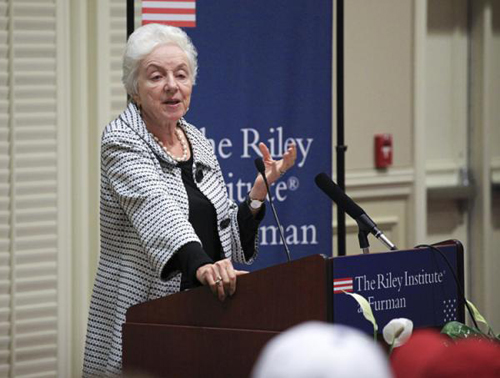
Sir David: We talk about the need to empower more girls by giving them better access to education. How do you see the situation?
Sir David: 在英國 – and in several other national systems – the hairpin of higher aggregate academic achievement by girls opens up early and widens across the years. It now has its analogue in the significantly higher proportion of women in higher education (HE) across the developed world. 與此同時, in many countries in Africa and South and West Asia, girls do not continue as regularly through second education, and as a consequence are also missing from HE.
These disparities – in either direction – mean wasted talent and distorted views of what men and women ought to be able to achieve. The problems are cultural (including in certain cases religious), 經濟, and political; and they will vary by context. The same will be true of the solutions.
What kinds of steps do you think will be the most effective?
Sir David: There is one overarching goal on which educators can work everywhere. That is to release the power of the imagination about a fairer, more respectful and cooperative world – including in eliminating gender discrimination. At the fourth Green Templeton College Emerging Markets Symposium earlier this year, which focused directly on gender inequality, delegates were able to identify some genuinely progressive narratives about, 例如, “stretching” the commitment of faith communities to incorporate gender equality; using mass communications (and entertainment) to underpin more positive role models (of women and men); and critically exploring each gender’s expectations of the other. There is a long journey to be traveled, but it can begin in the classroom.
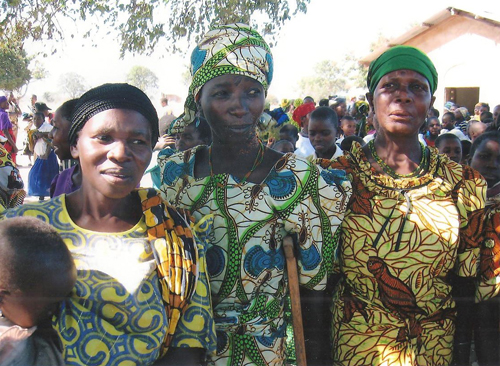
獲取省長: What role can the women themselves in emerging markets play in accelerating the steps to bring about gender equality?
州長瑪德琳獲取: The most direct way women can play a role is by telling their own stories and making themselves seen and heard. This can range from running for public office to marching in the streets. 在一些國家, political activism is more dangerous than others, but remaining silent and wringing our hands is no longer an option. The best indirect way for women to advance their status is by getting an education.
It is important for women of all income groups and religious and ethnic backgrounds to stand together. When women unite, they can be a powerful force. We must support one another. Gender equality often begins in the home before it enters the political arena. When we educate our daughters with the same expectations as our sons, they will have high hopes for themselves. Men cannot be ignored because they continue to dominate the power structure. Wherever and whenever we can form partnerships with like-minded men, women must do so. No political or social revolution was achieved without difficulty. Women must be prepared to not only express their demands, but also to sustain them.
What significant movements or endeavors are underway from women themselves, such as the civil rights movement in the U.S., the movement to end apartheid in South Africa, and the women’s suffrage movement in the U.S?.
州長瑪德琳獲取: Education remains the single most important key to gender equality. In order for women to have greater access to learning, education must become more affordable and safety has to be assured. Despite the barriers that many women face as they seek a better life for themselves and their families, they have to hold on to their dreams if they are to fulfill their dreams. We now have the facts that tell us that when we improve the condition of women, the entire society benefits by enjoying better economic conditions. Equal opportunity for women and girls to achieve their full potential is not only a moral issue, it is an economic issue which will improve the human condition.
The most recent example I have of social change is the gay and lesbian rights movement, which created dramatic cultural and legal changes in a record period of time. When I was first elected governor, I spoke at the first gay pride march in Burlington, 佛蒙特, my picture was in the newspaper, and someone scotch taped it to a cash register in a store with a red circle and slash over it. I never dreamt the day would soon arrive when the President of the US would announce his support for same sex marriage. Change is possible.
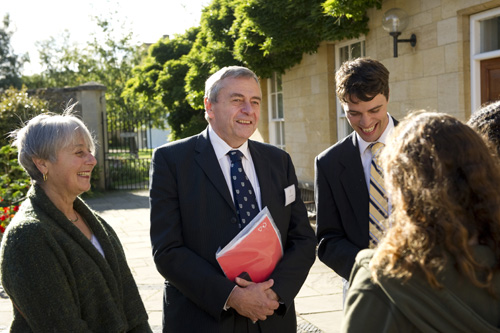
Professor Scott: What can private firms and corporations (national and international) do to promote women’s equality in the workplace and in society?
琳達·斯科特: Many companies are engaged in elaborate programs to help poor women in developing countries. This work is historic, 重要, and admirable. Yet there remains significant workplace inequality in the postindustrial nations — and these businesses are turning a blind eye to their own local problems. Inequality is visible, 例如, in the continuing phenomenon of unequal pay, which can be seen in the nation level data, even when all legitimate contributing factors are controlled and jobs are made comparable. This is disturbing because equal pay for equal work is the law in all the so-called “advanced” 國家. Unequal compensation and advancement are intimately linked with childcare issues, but family matters do not explain these figures fully. I believe the most important thing the private sector could do to ensure an equal workplace would be to sincerely focus resources on tracking, target-setting, and measuring the compensation and advancement of women in their own ranks. This should be done in an open, transparent manner. Without attention to the bread-and-butter issues that affect the women who work for them, flashy philanthropic programs are hypocritical.
President McAuliffe: What can elite women’s colleges in the U.S. and elsewhere do to sensitize future female leaders to the need to absorb and integrate gender equality into their approaches to the world?
簡·麥考利夫: The issue of gender equality is integral to the history and character of women’s colleges in the U.S. While single sex institutions elsewhere sometimes simply reflect cultural patterns of gender segregation, those that arose in the U.S. placed women’s rights and empowerment at the center of their foundational missions. Generally established in the pre-suffrage era, they embraced the grand idea that the aggressive pursuit of higher education in an environment that encourages young women to think critically and speak openly would not only change those particular young women but would transform U.S. society as a whole. Indeed this is precisely what happened.
The 21st century asks colleges to re-conceive the mission of gender equality on a global level. It also provides an opening to do this in a globally collaborative way that informs and advances all. American women’s colleges can bring 150 years of educating women to be leaders in the U.S. to a conversation that now includes students and colleagues around the world. They can form partnerships with like-minded institutions elsewhere, develop internationally collaborative curricula, and open their admissions and financial support to international students who lead change when they return home. They can convene international symposia that assemble the brightest minds to keep gender equality in the forefront of public consciousness. And they can guide students in building international friendships and connections that illuminate and engage them in each other’s projects of equality. Gender equity is unfinished business everywhere; working together we can make it everyone’s business.
欲了解更多信息: http://ems.gtc.ox.ac.uk/
For more articles in Women series: 部分 2, 部分 3, 部分 4 – 埃及
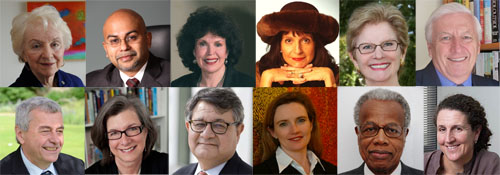
Photos are courtesy of Tatiana Philiptchenko, ç. M. 魯賓, 格林頓學院, Oxford University and Governor Madeleine Kunin.
在全球搜索教育, 和我一樣,全球知名的思想領袖,包括邁克爾·巴伯爵士 (英國), 博士. 邁克爾座 (美國), 博士. 萊昂特司特因 (美國), 克萊克里斯坦森教授 (美國), 博士. 琳達·達林 - 哈蒙德 (美國), 博士. 馬達夫恰範 (印度), 邁克爾·富蘭教授 (加拿大), 霍華德·加德納教授 (美國), 安迪·哈格里夫斯教授 (美國), 伊馮娜赫爾曼教授 (荷蘭), 克里斯汀Helstad教授 (挪威), 讓·亨德里克森 (美國), 玫瑰Hipkins教授 (新西蘭), 科妮莉亞Hoogland教授 (加拿大), 這位傑夫·約翰遜 (加拿大), 太太. 尚塔爾考夫曼 (比利時), 博士. Eija Kauppinen (芬蘭), 國務秘書塔皮奧Kosunen (芬蘭), 多米尼克·拉方丹教授 (比利時), 休·勞德教授 (英國), 本·萊文教授 (加拿大), 主肯麥克唐納 (英國), 巴里McGaw教授 (澳大利亞), 希夫納達爾 (印度), Ř教授. 納塔拉詹 (印度), 博士. 吳PAK (新加坡), 博士. 丹尼斯教皇 (美國), 斯瑞達拉賈戈帕蘭 (印度), 博士. 黛安·拉維奇 (美國), 理查德·威爾遜·賴利 (美國), 肯·羅賓遜爵士 (英國), 帕西SAHLBERG教授 (芬蘭), 安德烈亞斯·施萊歇 (PISA, 經合組織), 博士. 安東尼·塞爾頓 (英國), 博士. 大衛·謝弗 (美國), 博士. 基爾斯滕都沉浸式 (挪威), 總理斯蒂芬·SPAHN (美國), 伊夫Theze (法國公立高中美國), 查爾斯Ungerleider教授 (加拿大), 托尼·瓦格納教授 (美國), 大衛·沃森爵士 (英國), 迪倫Wiliam教授 (英國), 博士. 馬克沃莫爾德 (英國), 西奧Wubbels教授 (荷蘭), 邁克爾·楊教授 (英國), 和張民選教授 (中國) 因為他們探索所有國家今天面臨的大畫面的教育問題. 全球搜索教育社區頁面
ç. M. 魯賓是兩個廣為傳誦的在線系列,她接受了筆者 2011 厄普頓·辛克萊獎, “全球搜索教育” 和 “我們將如何閱讀?” 她也是三本暢銷書, 其中 真正的愛麗絲夢遊仙境.




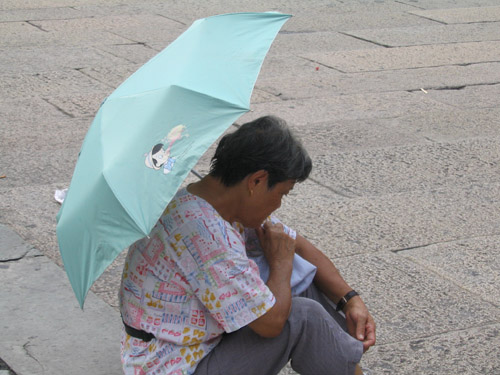

最新評論